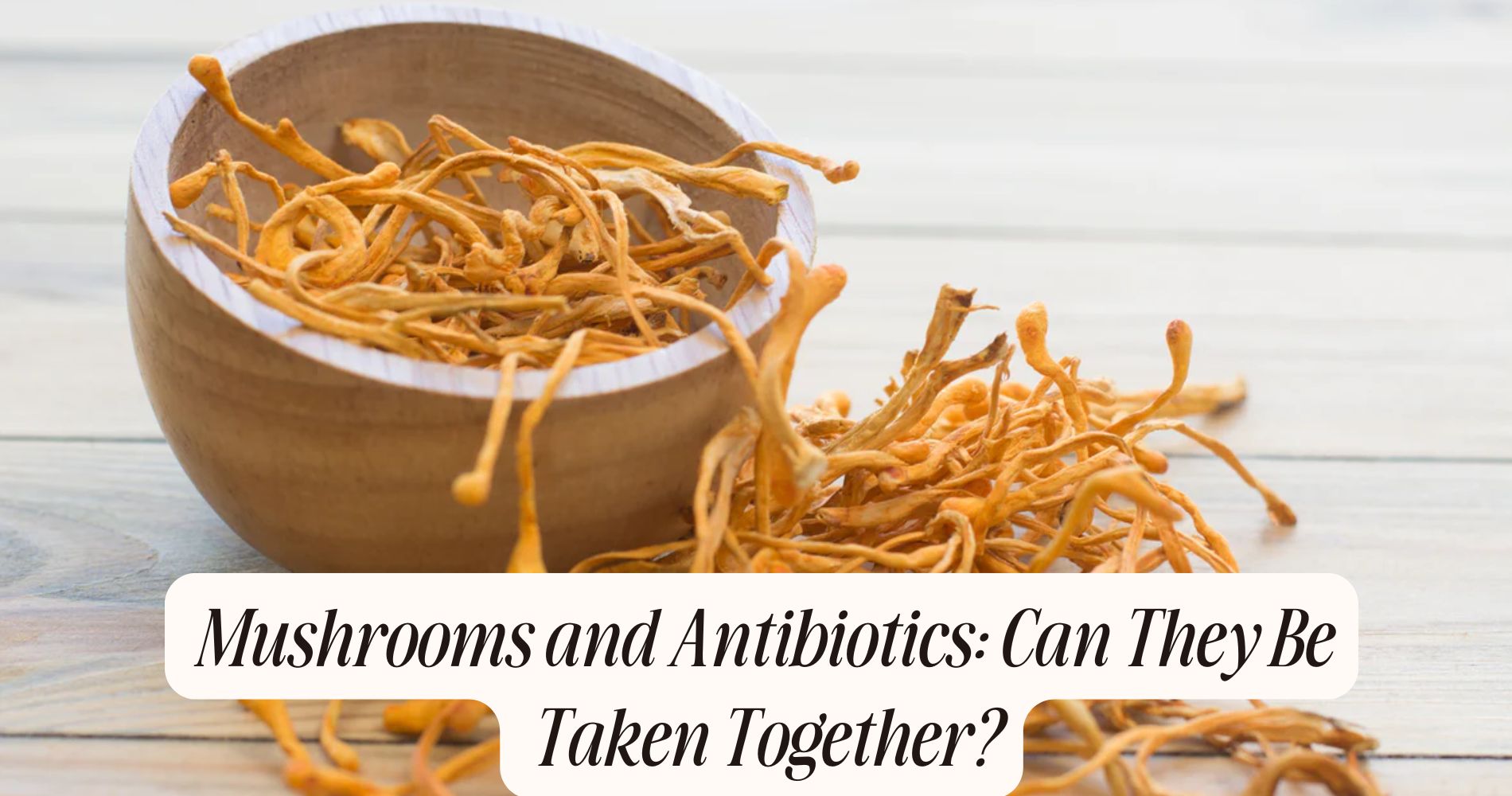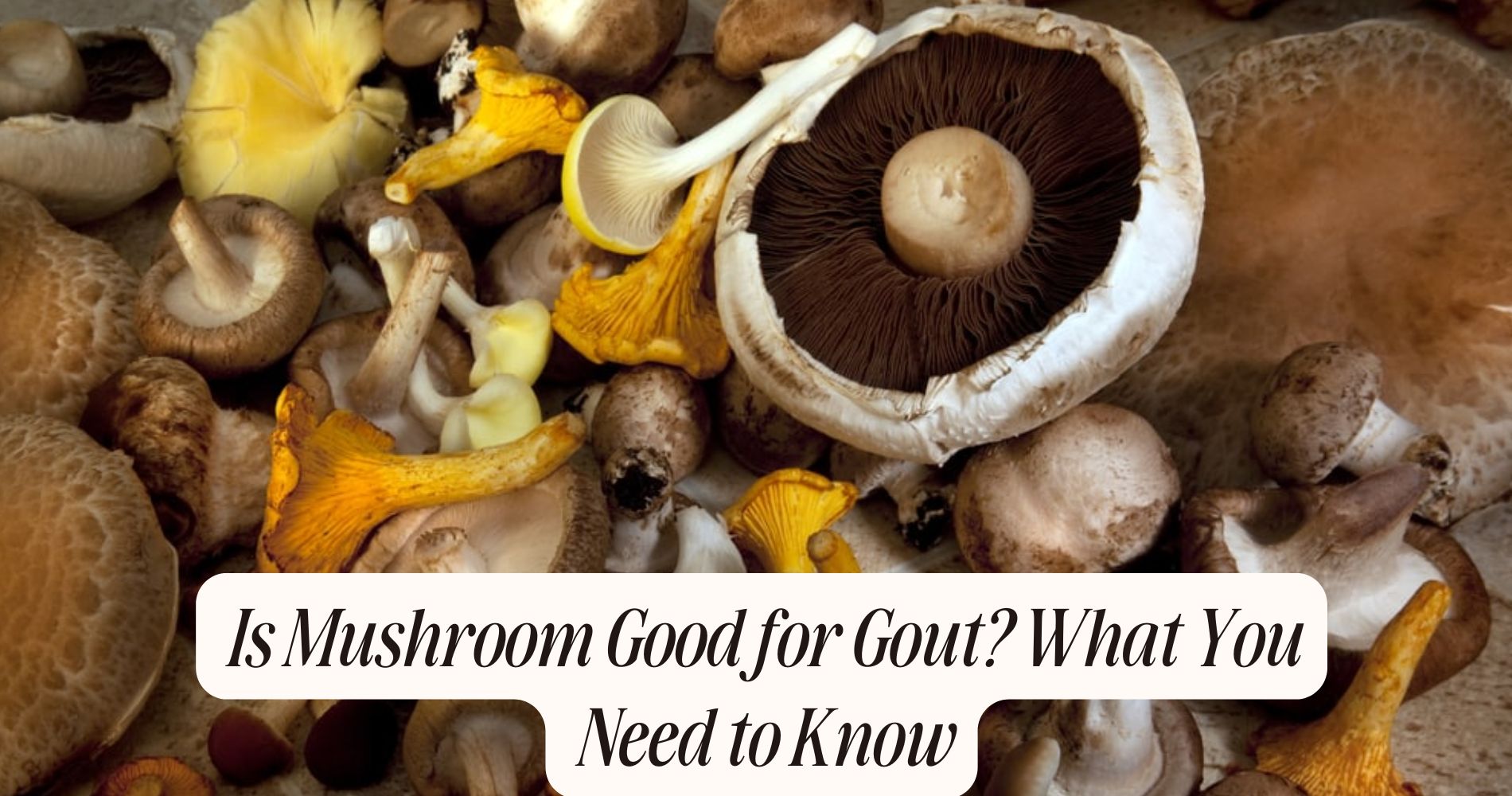
Mushrooms and Antibiotics: Can They Be Taken Together?
Mushrooms and antibiotics—can they be taken together safely? While mushrooms offer valuable nutrients, some compounds may affect antibiotic absorption or effectiveness. To minimize potential interactions, it's best to consume mushrooms at least two hours before or after taking antibiotics. Opting for well-cooked varieties in moderate amounts can also help reduce digestive issues. For personalized guidance, consulting a healthcare professional is always recommended. Keep reading to explore how different mushroom varieties impact health and their potential benefits.
Understanding Mushrooms: Types and Nutritional Benefits
Mushrooms aren't just a culinary delight; they're also packed with nutritional benefits that can enhance your health.
With various mushroom varieties like shiitake, portobello, and oyster, each brings unique flavors and health perks. These fungi are low in calories yet rich in essential nutrients, including vitamins B and D, minerals like selenium, and antioxidants that combat oxidative stress.

They're also a great source of dietary fiber, which supports digestion. Incorporating mushrooms into your diet can boost your immune system and improve heart health.
Plus, their versatility allows you to enjoy them in countless dishes, making it easy to reap their nutritional content. So, next time you cook, consider adding mushrooms for a healthful enhancement.
The Role of Antibiotics in Treating Infections
When you face an infection, antibiotics play a fundamental role in your recovery by targeting and eliminating harmful bacteria. They work through various antibiotic mechanisms, such as disrupting cell wall synthesis, inhibiting protein synthesis, or interfering with DNA replication.
These actions are significant in treating different infection types, including bacterial pneumonia, urinary tract infections, and skin infections. By effectively combating these pathogens, antibiotics help reduce symptoms and prevent complications.
However, it's essential to use them responsibly to avoid antibiotic resistance, which can make future infections harder to treat. Always consult your healthcare provider to determine the right antibiotic for your specific infection and to guarantee you're using it correctly for peak recovery.
Active Compounds in Mushrooms and Their Effects
Antibiotics are essential in treating infections, but exploring natural alternatives can also enhance your health.
Mushrooms contain various active compounds that offer promising medicinal properties. For instance, polysaccharides, particularly beta-glucans, boost your immune system and help fight infections. Compounds like triterpenes exhibit anti-inflammatory and antioxidant effects, which can support overall well-being.

Additionally, certain mushrooms, such as reishi and shiitake, are known for their potential to lower cholesterol and improve heart health. The unique blend of vitamins, minerals, and bioactive substances in mushrooms can complement traditional treatments, providing holistic benefits.
Incorporating these fungi into your diet may not only enhance your health but also support your body's natural defenses, making them a valuable addition to your wellness routine.
Potential Interactions Between Mushrooms and Antibiotics
While exploring natural health options, it's important to contemplate how certain mushrooms might interact with antibiotics.
Some mushrooms, like reishi and shiitake, contain compounds that could potentially influence antibiotic absorption in your body. These mushroom interactions may enhance or inhibit the effectiveness of antibiotics, depending on the compounds involved.
For instance, beta-glucans in mushrooms can stimulate the immune system, potentially allowing your body to fight infections more effectively, but they might also compete with the absorption of certain antibiotics.
It's vital to consult with a healthcare professional before combining mushrooms with antibiotic treatments. This way, you can guarantee that you're maximizing the benefits of both without risking reduced effectiveness or unwanted side effects.
Research Studies on Mushrooms and Antibiotic Efficacy
Research has shown that certain mushrooms can enhance the efficacy of antibiotics, providing a promising avenue for improving treatment outcomes.
Various mushroom studies have demonstrated that compounds like polysaccharides and beta-glucans may boost the immune response, leading to enhanced antibiotic effects.
For instance, research indicates that combining specific mushrooms with antibiotics can reduce the required dosage of these medications, potentially minimizing side effects.
Additionally, some studies suggest that mushrooms may help combat antibiotic resistance by inhibiting the growth of resistant bacteria.
This growing body of evidence highlights the potential benefits of integrating mushrooms into antibiotic treatments, offering a natural strategy to enhance therapeutic efficacy while addressing the challenges posed by resistant strains.
Best Practices for Consuming Mushrooms While on Antibiotics
When taking antibiotics, it's important to contemplate how mushrooms can fit into your diet.
First, consider the timing of your antibiotic doses. Aim to consume mushrooms at least two hours before or after taking your antibiotic to minimize any potential interactions.
Focus on moderate mushroom consumption, as excessive intake may overwhelm your digestive system, especially while on medication. Choose fresh, well-cooked mushrooms to guarantee they're safe and easier to digest.
If you're trying new mushroom varieties, start slowly to monitor how your body reacts.
Always consult your healthcare provider about incorporating mushrooms into your diet while on antibiotics, as they can provide personalized advice based on your specific situation.
This way, you can enjoy the benefits without jeopardizing your treatment.
Popular Mushroom Varieties and Their Health Benefits
Mushrooms aren't just a tasty addition to your meals; they also offer a range of health benefits that can enhance your overall well-being.
Popular culinary varieties like shiitake and oyster mushrooms are packed with nutrients, providing antioxidants and supporting immune function.

Medicinal mushrooms such as reishi and chaga have been shown to reduce inflammation and improve stress response.
Lion's mane is known for its potential cognitive benefits, promoting brain health and enhancing focus.
Incorporating these mushrooms into your diet can boost your nutritional intake while delivering powerful health advantages.
Whether you're sautéing them in a stir-fry or brewing them in a tea, these varieties can easily fit into your lifestyle and help you thrive.
When to Consult a Healthcare Professional
Are you unsure about whether to consult a healthcare professional regarding the use of mushrooms for health benefits?
It's important to seek advice if you're experiencing unusual symptoms after consuming mushrooms or if you have a pre-existing medical condition. A thorough symptom assessment can help determine if mushrooms are safe for you.
Additionally, if you're taking antibiotics or other medications, your medication history is vital. Some mushrooms may interact with your treatments, affecting their efficacy or causing adverse reactions.
Always consult your healthcare provider before adding new supplements to your routine, especially if you're pregnant, nursing, or have underlying health issues.
Prioritizing your safety will help you make informed decisions about your health.
Support Your Wellness with SUPER MUSHROOM GUMMIES
Looking to boost your immune system while supporting focus and energy? Well Gummies' SUPER MUSHROOM GUMMIES make it easy! Packed with 10 functional mushrooms, these vegan gummies provide natural immune support, sharper focus, and sustained energy—all in a delicious fresh wild berry flavor. No jitters, no crash—just a simple, chewable way to fuel your body and mind. Add Well Gummies to your routine and experience the benefits of mushrooms in the most convenient way!
Frequently Asked Questions
Can Mushrooms Enhance the Effectiveness of Antibiotics?
Certain mushroom varieties, like Shiitake or Reishi, may enhance antibiotic synergy by boosting your immune system and potentially improving antibiotic efficacy. However, more research is needed to confirm these effects in clinical settings.
Are There Specific Mushrooms to Avoid While on Antibiotics?
While on antibiotics, you should avoid certain mushroom types like reishi and shiitake, as they may interact negatively. Always consult your healthcare provider for guidance on antibiotic interactions before consuming any mushrooms.
How Do Mushrooms Affect Gut Health During Antibiotic Treatment?
Mushroom varieties like shiitake and reishi can positively influence your gut microbiome during antibiotic treatment. They contain prebiotics, which help maintain healthy bacteria levels, supporting gut health while antibiotics may disrupt your natural flora.
Can Mushroom Supplements Interfere With Antibiotic Absorption?
Mushroom interactions may affect antibiotic absorption, potentially reducing antibiotic efficacy. To guarantee ideal treatment, consult your healthcare provider before combining mushroom supplements with antibiotics, as individual reactions can vary and impact your recovery.
Should I Consult a Doctor Before Combining Mushrooms and Antibiotics?
Yes, you should consult a doctor before combining mushrooms and antibiotics. There could be mushroom interactions affecting effectiveness or contributing to antibiotic resistance. Always prioritize safety and seek professional advice for your health concerns.
Conclusion
In conclusion, while mushrooms offer numerous health benefits, their interaction with antibiotics can vary. It's important to take into account the specific type of mushroom and antibiotic you're using. Generally, most people can safely consume mushrooms while on antibiotics, but it's wise to monitor your body's response. If you have any concerns or experience unusual symptoms, don't hesitate to consult a healthcare professional. Prioritizing your health guarantees you get the most out of both mushrooms and antibiotics.




